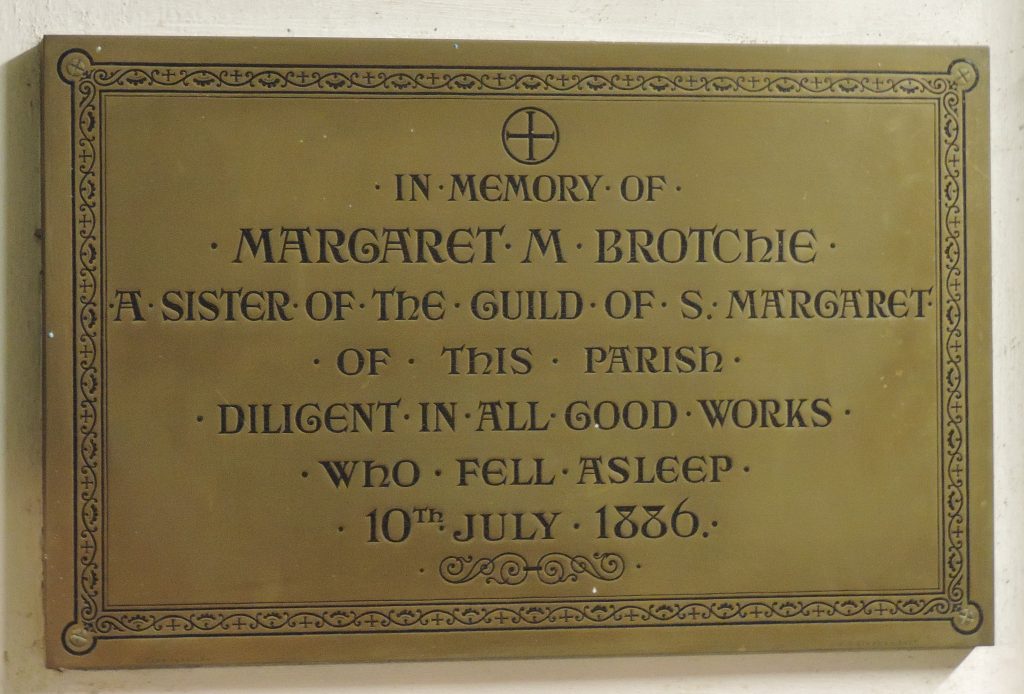In St Mary’s Chapel, there is a brass plaque on the wall in the south aisle commemorating Margaret Mansonia Brotchie, a member or ‘sister’ of the Guild of St Margaret. The plaque is shown in the photograph. The Guild was started in 1882 during the first year of the innovative ministry of Revd. James Cooper, but Margaret Brotchie had only been a member for 18 months when she died in July 1886.
This Guild is believed to have been the earliest guild for women in any Scottish parish church and was active 6 years before the formation of the Women’s Guild at national level. The intention was that it should provide a focus for mutual support and encouragement for women who were engaged is some aspect of church work – Sunday school teaching, district visiting, soup kitchen, knitting or sewing garments for the poor, etc. In addition to these practical activities, they were also devout, frequently meeting for worship, for which they even had their own printed service book. Much of the activity of the Guild was centred in the Mission Rooms in Guestrow and it was there that the memorial was initially placed. However, when the Rooms closed it was appropriately moved to St Mary’s Chapel in which many of the Guild services were later held.

Very little is known of Margaret herself: she was born on 7th April 1835 daughter of John Brotchie, parochial schoolmaster in Kintore, and died at 134 Crown Street at the age of 51. At a meeting of the Council of the Guild on 13th September 1886, in noting her death, mention was made of ‘her goodness and kindness of heart’ as having won the respect of all. It was agreed to send an expression of sympathy to her brothers, and with their agreement, to erect a brass memorial tablet. The cost was estimated at £3 and it was later calculated that that could be raised if each member contributed 6 pence. It was shown to members, prior to erection, on 7th February 1887 and was ‘much admired’